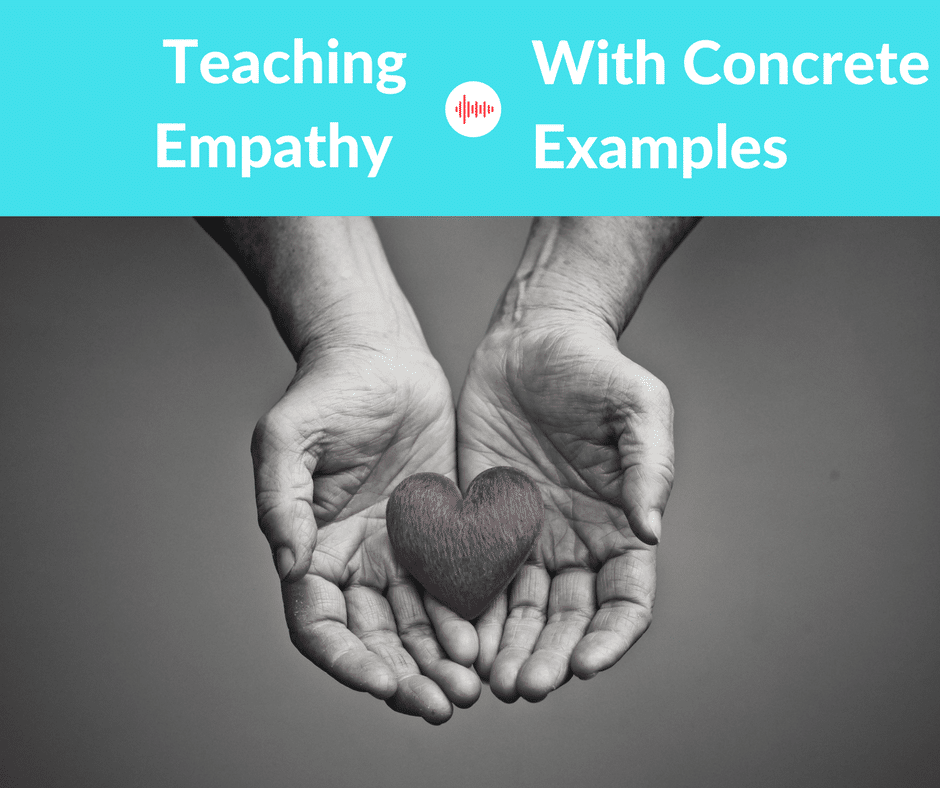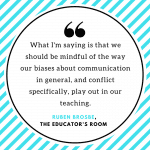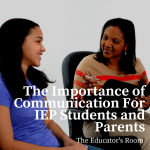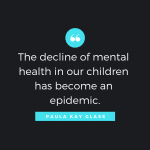“They just want to sleep in their own bed”
The first 50-plus days of Donald Trump’s presidency have provoked an intense mixture of anxiety, fear, anger, and urgency for many Americans. As the great-grandson of immigrants who fled anti-Semitic pogroms in Eastern Europe, it’s heartbreaking to see our president close the country’s doors to refugees and immigrants seeking a better life through his second Muslim ban. It also emphasizes the need for me to teach empathy to our students, and to do so with concrete examples.
On the Sunday after Donald Trump signed his first Muslim ban, I was in a cab in Philadelphia. I thinking about the ban and the protests, preparing to talk about it with my students on Monday. “What will I say?” I thought to myself.
I was inspired by the words of my cab driver. As we were discussing the ban, and she said, “It’s so sad. They just want to sleep in their own bed.”
[bctt tweet=”It’s so sad. They just want to sleep in their own bed” username=”EducatorsRoom”]
Immediately I appreciated the power and simplicity of this statement.
There are a lot of things I want to discuss with my students. I want them to hear stories of refugees. I want them to understand the roots of the geopolitical chaos that manufactured our current refugee crisis. I want them to learn about Islam, religious freedom, and the Bill of Rights.
But, my students are nine and ten years old. They are still very concrete thinkers. So, rather than beginning our conversation with a conversation about Islamophobia or civil rights, I began with the idea of having a bed to sleep in that’s your own. How does it feel to come home to a bed that’s your own? How does it feel to be away from home or a bed of your own?
I know that even when I’m enjoying the privilege of traveling to a conference or on vacation to another country, eventually I crave my own bed at home. It’s such a simple, yet powerful and visceral feeling. When my cab driver evoked that connection for me, it made the injustice of the Muslim even more emotional. I want my students to practice that same skill of empathy.
Empathy can be challenging for 4th graders. Human beings are innately self-centered, but young people can be even more so. This isn’t a moral judgment developed yet, a fact of child development. They tend to see and interpret the world through their own experiences. Educators know this all too well from mediating conflicts or addressing bullying. Kids have trouble expressing empathy for their classmates, so if they don’t have firsthand experience with refugees or immigrants, empathy will be an even bigger reach.
So, empathy, like any other difficult skill requires us to be intentional, creative, and persistent. If we can teach our kids to understand equivalent fractions (the bane of my existence right now!) then we can teach them to show empathy for others, including refugees.
Harvard Graduate School of Education’s “Making Caring Common” project suggests five ways to help kids demonstrate more empathy or kindness. They include using read alouds, exploring world geography, having a kindness competition, sitting with someone new at lunch, and participating in community service.
Read alouds are one of my favorite ways to make issues relatable for my students. ReadBrightly is a great place to find ideas, including a list of picture books to help kids understand the refugee experience. But we must work to make empathy concrete beyond stories.
For starters, we must model empathy as we would any other skill. If you don’t listen to your students and use empathy as part of your classroom management, how likely are your students to show empathy to others?
Then, we must help our kids become more in tune with their own emotions. They can’t show empathy for the feelings of others if they can’t express their own. There are lots of programs out there to develop students’ emotional self-awareness. The Yale Center for Emotional Intelligence’s RULER is one of them.
Finally, we must give them concrete examples to draw on. Draw on students’ world to make empathy real. Their homes, their friends, their family, and their hobbies are what matter most to them. Use them to make connections to each other, and to the wider world. If we can teach our students the value of empathy, hopefully, they’ll grow up to create a kinder, more just world.








Thanks for sharing. I’m a prefirst teacher in Mexico City and will also be talking and teaching my kids about empathy.
Actually it wasn’t a Muslim ban. He banned entry from specific countries that happened to be predominantly Muslim. The ban was done in order to limit the risk if terrorists, criminals, and other nefarious individuals making their way into our country and taking advantage of our generosity. Instead of teaching a lesson on empathy perhaps you could teach a lesson on why facts and the truth matter more now than ever.